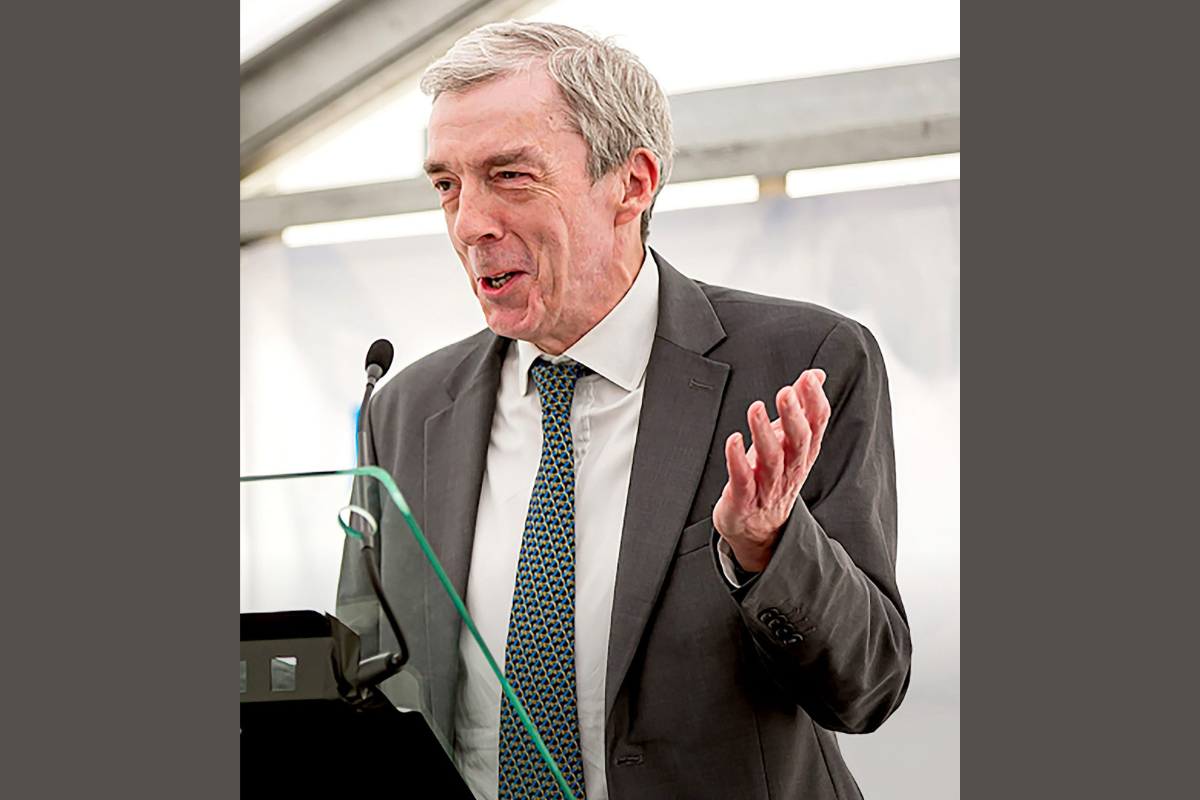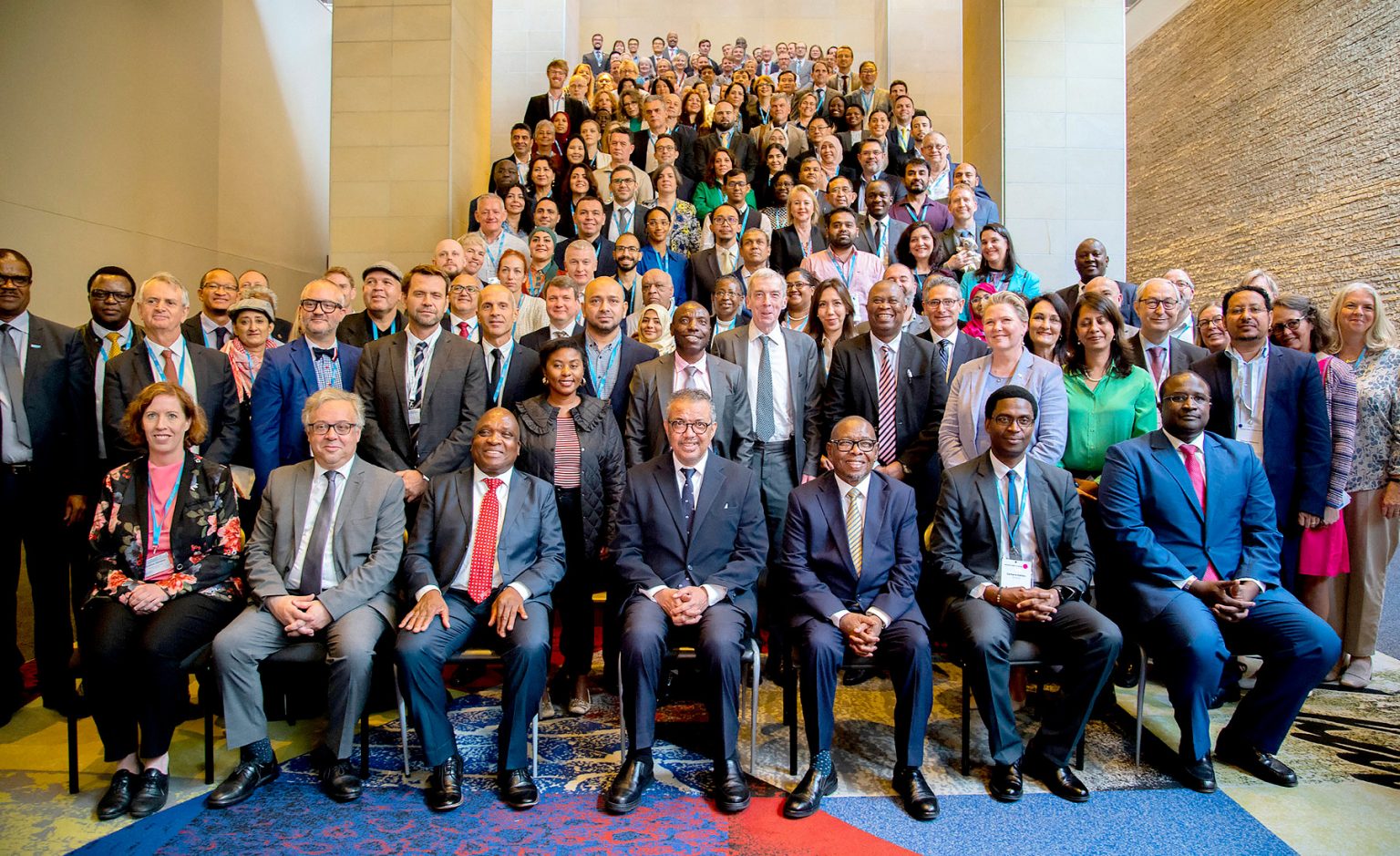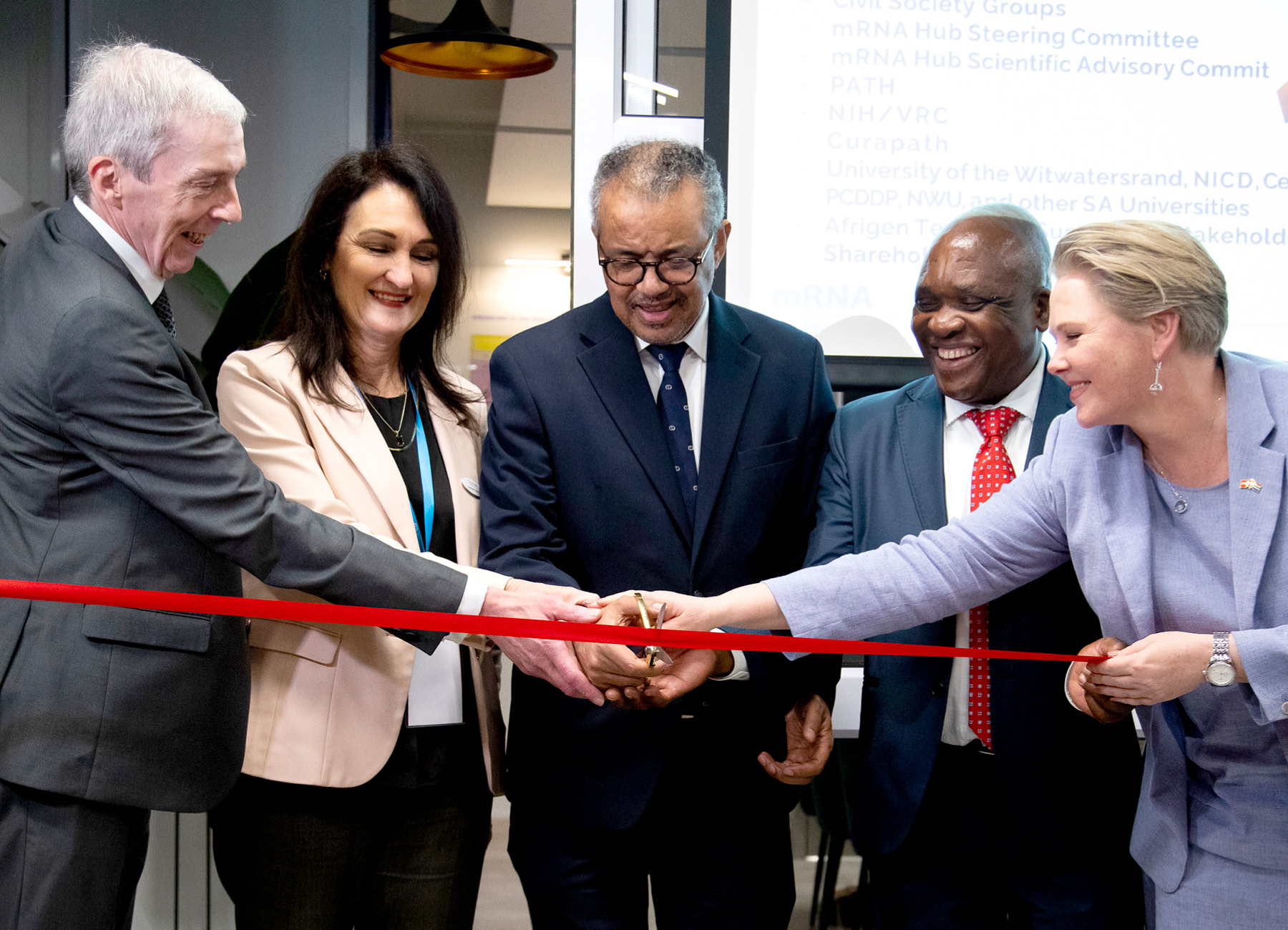Death Defiant: Charles Gore
Global pharmaceutical equality is no longer a dream thanks to the work of the Medicines Patent Pool. But Executive Director Charles Gore says there’s still a long way to go.
Recent events pushed healthcare back into the global spotlight with renewed vigor. Over the course of just a few months, the world was reminded just how crucial medicines can be.

But with the COVID-19 pandemic sucking up all the oxygen, diseases that disproportionately affect marginalized people were forced into an even quieter corner.
Hepatitis C, tuberculosis and HIV may not command the same level of attention as they have in years past, but despite the best efforts of the healthcare industry and charitable organizations, they haven’t gone away. Millions around the world are still suffering, often in muted tones.

Diseases are indiscriminate in their wrath; those in high income nations are just as susceptible as those in low and middle income countries. And while the former typically have greater access to breakthrough pharmaceuticals that have improved life expectancies, this is not often the case for the latter.
Another way
There are those working in the shadows, however, to ensure everyone affected by these destructive forces are able to access medical help.
In 2010, Unitaid established the Medicines Patent Pool (MPP), an international organization aimed at providing effective, affordable and easily accessible medical treatments to those in low and middle income countries.
This is achieved by licensing medicines from patent holders. The MPP then sub-licenses those rights to manufacturers of generic pharmaceuticals so they can produce low-cost – but no less effective – medicines in a timely fashion.

It makes no sense morally or practically or from virtually any other point of view to have a medicine that will cure someone of a disease, yet people die from it because they can’t access it.
And for Charles Gore, Executive Director of the MPP, that’s what it’s all about. When he was approached to join the MPP in 2018, Gore was Chief Executive of The United Kingdom-based Hepatitis C Trust, which he established in 2000 and operated on a similar model.
"We were committed to getting medicines to people who had problems accessing it," he tells The CEO Magazine.
"Quite a lot of marginalized groups have high prevalence rates of hepatitis C, so I liked being a voice for them and making sure they got the services they needed. MPP gave me the chance to do that on a bigger scale."
Making a difference
HIV has traditionally been the focus of the MPP’s work, but Gore says that changed shortly before he joined the organization.
"It was decided that since the MPP model was working so well for HIV, it should be expanded to essential medicines across the board," he says. "We saw an opportunity to really make a difference and perhaps do more than the MPP had done before."
Throughout his career, Gore had been driven by a sense of fairness and equality in terms of healthcare.
What actually matters is whether people have access at the end of the day.
"I’m committed to the principle that people in LMIC deserve the best medicines as quickly as people in high-income countries," he says. "It makes no sense morally or practically or from virtually any other point of view to have a medicine that will cure someone of a disease, yet people die from it because they can’t access that medicine."
Although the MPP was working to change that situation, Gore felt that the process could be improved. "What we do has a lot to do with intellectual property, a pretty complicated subject," he says.
"We’re a great technical agency in that way, but I felt we tended to concentrate a bit too much on the technical rather than on the people. Signing licenses is great, but they’re just pieces of paper, a way of getting access. What actually matters is whether people have access at the end of the day."
Equitable access
Having just expanded its mandate, the MPP was in the process of adjusting to a new normal when the COVID-19 pandemic struck.
"What that did was put much more of a spotlight on the crucial nature of equitable access," Gore says. "As a part of that, the pharmaceutical industry came to us and gave us licenses for the antivirals when they were developed."
That development has caused the MPP to double in size during Gore’s tenure as Executive Director. And he says there’s more growth to come.
We want to build on our expansion, but not to the point of overreaching.
"At the beginning of 2023 we launched our next three-year strategy," he says. "We want to build on our expansion, but not to the point of overreaching. It’s my responsibility to ensure we grow at a rate that’s manageable."
That means putting the MPP’s enhanced expertise around vaccines to use, as well as entering the biologics space.
"It’s a different kettle of fish," Gore says. "It’s more expensive, takes longer, and generally there are many more things that can go wrong, but so many of the new therapeutics across different diseases are biologics, so we felt we absolutely needed to be in that space."
License to heal
At the same time, the MPP is overhauling its prioritization program. With so many drugs in development at any given time, care must be taken to prioritize what the MPP can license.
"We look for good candidates that show a lot of promise, that could have a big impact," he says.
Another consideration is local manufacturing, which helps drive the cost of medicine down.
"Prior to COVID-19, our manufacturers were primarily based in India," Gore says. "During the pandemic, we made a real effort to expand the number of companies we gave licenses to, but not many African companies applied."
The African Union has committed to a goal of 60 percent of medical products consumed by Africans being locally manufactured by 2040.
"Luckily, there’s a huge movement to support those manufacturers to improve their capabilities," Gore says. "The European Commission, for example, is pouring lots of money into this. And we are absolutely behind the African Union, and want to do what we can."
Game changer
Part of the challenge is an ongoing stoush between countries around intellectual properties.
"South Africa and India are trying to get a waiver on IP [intellectual property], and high-income countries are resisting that," Gore says. "What the MPP is saying is that our model of voluntary licensing is a middle ground. Our licenses are transparent, and generic manufacturers compete with each other to lower the price of those drugs."
Our licenses are transparent, and generic manufacturers compete with each other to lower the price of those drugs.
As a result, HIV medicine programs that cost US$10,000 per person per year in high-income countries could cost as little as US$50 per person in Africa.
"That’s a real game changer in terms of what’s affordable," he says. "So the next two years are going to be very busy."
Culture of collaboration
As the only public health licensing body in health and patent pooling, the MPP inevitably must carry out much of its work alone, but this is something Gore is trying to mitigate.
"Since I took over, I’ve tried to instill a culture of collaboration," he explains. "One of the things I say to my staff is that we succeed or fail as a team. Everybody contributes, there’s no ego involved. We care about other people, we have their backs, we don’t stab them in the back."
External allies include the World Health Organization – about as brawny a companion as a healthcare organization could hope to have – as well as a phalanx of manufacturers of generic pharmaceuticals, including India’s Aurobindo Pharma and HIV antiretroviral specialist Hetero Drugs.
We cannot do this on our own. We’re entirely dependent on working with others, which is very good for our humility.
"When we sub-license to generics, there’s a huge element of trust," Gore says. "When COVID-19 came along, we asked our generic partners to sign an open call to the pharmaceutical industry to give us licenses; they all signed within a week. That’s how strong our partnership is with them."
The MPP also partners with governments to raise awareness of the availability of generic alternatives and encourage uptake.
"We’ll ask, ‘What can we do for you? How can we help?’," Gore says. "And they’ll tell us ‘This is what we need and if you can get it at an affordable price, we’ll buy it’. Fantastic. We cannot do this on our own. We’re entirely dependent on working with others, which is very good for our humility."
Caring for all
Equitable access to quality, effective medicine is an essential part of modern life. Gore says the many players in the pharmaceutical space have a duty to build access at an R&D level so that future drugs are suitable for conditions around the world.
"This is for health. We can’t leave people behind, we’ve got to reach everyone with whatever medical product we’re developing," he says. "And I’m not just talking about marginalized communities; people rarely think about children when talking about medicine. They’re not little adults, they need special formulations and dosages. They’re always an afterthought, so when I talk about equitable access it’s a much bigger issue than people realize."
We can’t leave people behind, we’ve got to reach everyone with whatever medical product we’re developing. And I’m not just talking about marginalized communities.
The solution, he says, is simultaneous worldwide releases of new medicines so that everyone who needs access can get it. The transparency and public nature of the MPP model means people can follow the progress of this solution as it comes to pass.
"It isn’t just about doing it. It’s about being seen to do it so that people realize that access is happening," Gore says. "And we are here as MPP to help companies make that a reality."
IN COLLABORATION WITH
Sponsored by: Aurobindo Pharma
A pharmaceutical company ensuring lifesaving medicines are available to people living with HIV.
Read More